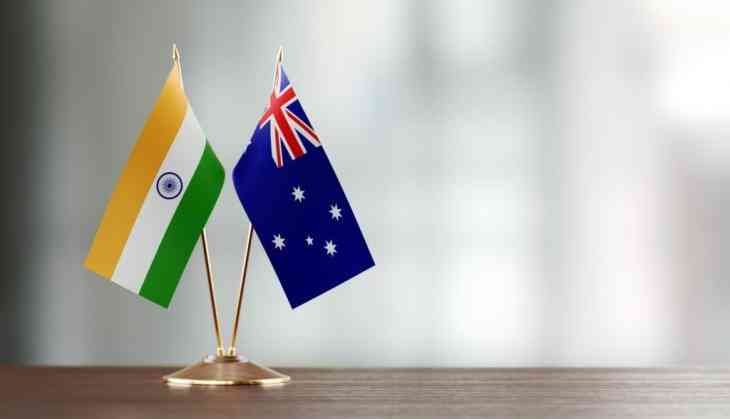
The Australia-India relationship has evolved significantly in recent years, driven by shared strategic interests and people-to-people ties. The recent bilateral achievements and the growing geostrategic relationship between the two nations.
In an era marked by globalization and interconnectedness, the dynamics of international relations have evolved, leading nations to seek innovative ways to enhance cooperation and foster deeper ties. Against this backdrop, the Australian government’s decision to establish the Centre for Australia-India Relations signifies a significant milestone in the bilateral relationship between the two nations. The relationship between India and Australia holds immense potential across various sectors, ranging from policy collaboration to infrastructure development and medical tourism. India’s approach to foreign relations is characterized by a combination of pragmatism, diplomacy, and strategic alliances. Through its “Act East” policy, India seeks to enhance its engagement with the Asia-Pacific region, including Australia, in areas such as trade, security, and cultural exchanges. Additionally, India’s emphasis on economic diplomacy underscores its commitment to fostering mutually beneficial partnerships with countries like Australia.
At the policy level, both India and Australia have made significant strides in strengthening bilateral ties through frameworks such as the Comprehensive Strategic Partnership (CSP) and the India-Australia Economic Cooperation and Trade Agreement (IA-ECTA). These agreements aim to promote trade liberalization, investment facilitation, and strategic cooperation in areas such as defense, energy, and technology transfer. Infrastructure development is another area of collaboration between India and Australia. India’s ambitious infrastructure projects, such as the Sagarmala and Bharatmala initiatives, offer opportunities for Australian companies to contribute expertise and technology in areas such as port development, urban planning, and renewable energy infrastructure.
At its core, the Centre aims to serve as a national platform, bringing together all levels of government, industry stakeholders, and the broader community to drive Australia-India engagement. By functioning as a hub of collaboration and knowledge exchange, the Centre seeks to complement existing institutions and serve as a catalyst for deepening ties between the two countries. Moreover, India’s burgeoning medical tourism industry presents lucrative prospects for collaboration with Australia. With the growing popularity of alternative medicine, particularly Ayurveda, India has emerged as a leading destination for medical tourists seeking holistic healthcare solutions. By partnering with Indian healthcare providers, Australia can tap into this lucrative market and offer specialized treatments to Indian patients seeking high-quality medical care abroad.
Australia can learn valuable lessons from India’s approach to medical tourism, including strategies for promoting wellness tourism, enhancing patient experience, and leveraging digital technologies for healthcare delivery. India’s success in positioning itself as a global healthcare destination underscores the importance of investing in infrastructure, talent development, and marketing strategies to attract international patients. India-Australia relationship offers a wealth of opportunities for collaboration across policy, infrastructure, and medical tourism. By leveraging each other’s strengths and fostering closer ties, both countries can unlock new avenues for economic growth, innovation, and cultural exchange. As India continues to emerge as a global powerhouse and Australia seeks to diversify its economic ties, the synergy between these two nations holds the promise of a mutually rewarding partnership in the years to come.
Achievements and Cooperation:
1. Economic Ties: Australia and India have strengthened their economic partnership, with bilateral trade increasing by 18% in 2022-23. The signing of the India-Australia Economic Cooperation and Trade Agreement (ECTA) in 2022 has further boosted trade and investment ties.
2. People-to-People Ties: Australia and India enjoy strong people-to-people ties, with over 700,000 Indians living in Australia and over 100,000 Australians living in India. This has facilitated the growth of cultural, educational, and tourism ties between the two nations.
3. Geopolitical Cooperation: Australia and India have expanded their cooperation in the Indo-Pacific region, particularly in areas such as maritime security, counter-terrorism, and disaster relief. The two nations have also increased their collaboration in regional forums such as the East Asia Summit and the ASEAN-Australia-New Zealand Free Trade Area (AANZFTA).
4. Defense and Security Cooperation: The Australia-India defense and security relationship has strengthened in recent years, with the two nations conducting joint exercises and training programs. The signing of the Australia-India Defense Ministers’ Meeting (ADMM) in 2022 has further enhanced defense cooperation.
Pacific Pioneers: Charting New Frontiers in India-Australia Engagement
The Australia-India relationship has the potential to be a game-changer in the Indo-Pacific region. With shared strategic interests and deepening people-to-people ties, the two nations are poised to achieve even greater heights in the years to come. The following steps could be taken to further strengthen the relationship:
1. Enhance Trade and Investment Ties: Australia and India should continue to work towards reducing trade barriers and promoting investment ties, particularly in sectors such as energy, resources, and infrastructure.
2. Strengthen Geopolitical Cooperation: The two nations should continue to collaborate on regional and global issues, including maritime security, counter-terrorism, and disaster relief.
3. Promote Education and Cultural Exchange: Australia and India should encourage more student exchanges, research collaborations, and cultural exchange programs to further strengthen people-to-people ties.
4. Expand Defense and Security Cooperation: The two nations should continue to enhance their defense and security cooperation, including joint exercises, training programs, and intelligence-sharing.
Crossroads of Opportunity: Nurturing Synergy in India-Australia Bilateral Ties.
The Australia-India relationship has the potential to be a powerful force for good in the Indo-Pacific region. With shared strategic interests, deepening people-to-people ties, and growing geostrategic cooperation, the two nations are poised to achieve great things in the years to come. Moreover, the Centre is tasked with strengthening diaspora ties and fostering greater engagement with the Indian community in Australia. With a sizable Indian diaspora population contributing significantly to Australia’s cultural diversity and economic prosperity, the Centre recognizes the importance of nurturing these ties and leveraging the diaspora’s expertise and networks. Through targeted initiatives and outreach programs, the Centre seeks to empower the Indian diaspora to play a more active role in bilateral relations, serving as bridges between the two nations.
Australia-India Relations represents a strategic initiative aimed at deepening and diversifying the bilateral relationship between Australia and India. By serving as a focal point for engagement and collaboration, the Centre has the potential to unlock new opportunities, strengthen business and diaspora ties, promote cultural exchange, and foster greater mutual understanding and cooperation between the two nations. As Australia and India navigate the complexities of the 21st century, the Centre stands poised to play a pivotal role in shaping the future trajectory of their partnership, contributing to peace, prosperity, and stability in the region and beyond.






Add comment